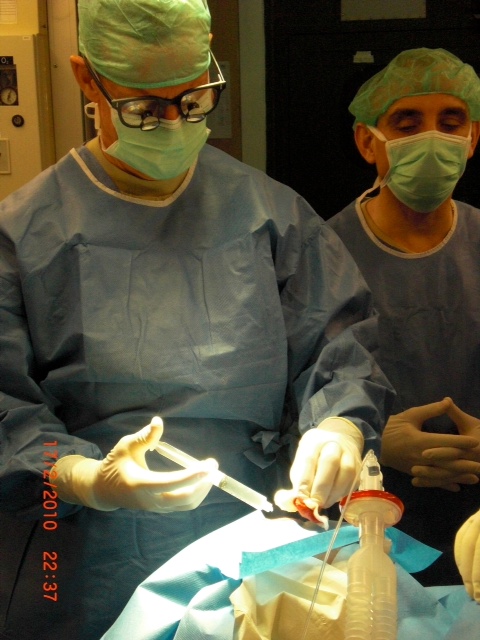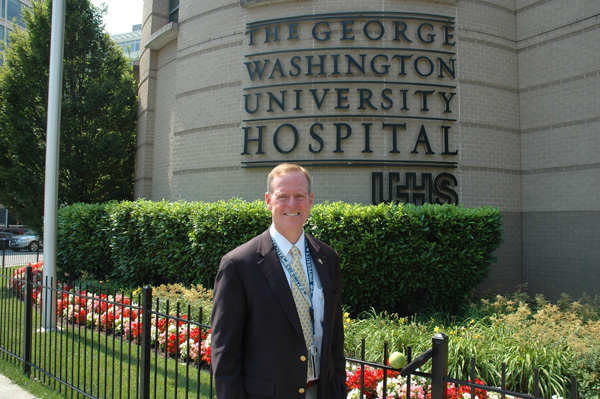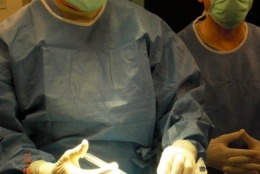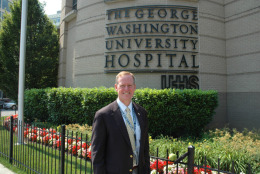



Paula Wolfson, wtop.com
WASHINGTON – He is a doctor and a soldier. And though he will deny it, there are people who consider him a hero.
Dr. Frederick Lough is director of cardiac surgery at The George Washington University Hospital. He is also a colonel in the U.S. Army Reserves Medical Corps.
At an age when many soldiers have already retired from the military, Lough is leaving his family and colleagues at the hospital behind to embark on a second three-month deployment with the reserves in Afghanistan.
He says he has an obligation to give back.
“I owe essentially all I am to my country, and to the United States Army and to George Washington University,” he says.
Lough is a graduate of West Point, and the George Washington Medical School, and he received his surgical training at Walter Reed. After a military career that lasted almost two decades, he eventually returned to the Washington area about ten years ago and joined The George Washington University Hospital staff.
But when the Afghan war began, he said he felt the need to serve again and signed up with the reserves. His first three-month tour of duty was at a NATO hospital in Herat, in Western Afghanistan, working with a medical team from several European countries in a facility the size of a large ranch house.
“Even though very few spoke English, everyone spoke medicine, and we were able to deliver, I thought, superb care,” he says.
This time he will be south of Kabul, in an area not far from the Pakistani border. He will serve with a forward surgical unit that will provide quick care close to the point of injury.
“Our goal would be to stabilize the patient in life-threatening situations,” he says.
Each operating tent is small but efficient — about the same dimensions as an average child’s bedroom. And while the equipment is light years from what was seen during past wars, Lough acknowledges it’s austere when compared with the G.W. emergency room. All the same he emphasizes — with a bit of military pride — that “the results are remarkable.”
Lough says his family understands why he is going back to Afghanistan. Four of his five children are West Point graduates, carrying on what has become a family tradition, and he says his wife is “extremely supportive.”
“We are aware of the sacrifices our young men and women are doing and we are happy to do what we can,” he says.
Lough says he is not overly concerned about the dangers he might personally face in the forward surgical unit.
“We are relatively safe in an unsafe place,” he says.
And, if the Army needs to call him up again, will he go? With military precision in his voice he thinks for a split second and says, “if asked…for sure.”
Follow WTOP on Twitter.
(Copyright 2012 by WTOP. All Rights Reserved.)







